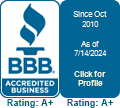If you’ve lost time from work because of Staph or MRSA, then you know the stress, uncertainty and frustration these infections can inflict. On top of the often high cost of treatments, lost income from missing work can cause a huge financial strain.
You want to go back to work and get your life back on track as soon as possible. But you also want your friends, family and coworkers to be safe from catching your infection. If you’ve lost work due to Staph or MRSA then you’ve probably been wondering the following:
Should you go to work if you have an active infection?
When is it safe to go back to work after your infection has cleared?
What are the risks of someone catching your infection?
These are important questions for yourself and your coworkers. While the answers can vary depending on each person’s situation, there are some common points everyone should consider before heading back to work:
- Active infections can be more contagious. People with active infections, especially open wounds, are usually most contagious and should take extra precautions. Open wounds should be covered and maintained properly to reduce the risk or spreading your infection.
- You can reduce the risks. Consistent and effective hygiene and MRSA infection control go a long way toward preventing the spread of Staph, MRSA and other contagious infections. If you have a history or MRSA or Staph infections, then proactive steps to boost your immune system are also important. Maintenance doses of natural antibacterial supplements can also be helpful.
- Talk with your doctor. If you’re unsure about returning to work, ask your doctor for a risk assessment based on your infection status, your overall health and your work environment.
- Staph and MRSA testing. The only way to know if you have MRSA is to get a test from your doctor. Positive test results can mean that you have an active infection or that you are a MRSA carrier. Negative results usually mean that the infection has cleared and the risk of passing the infection to others is reduced. However, because of MRSA resistance mechanisms like l-forms and biofilms, recurring infections are common.
- MRSA carriers. People can carry Staph or MRSA bacteria on their skin or in their nose and never become infected themselves. However, MRSA carriers can infect other people and spread the bacteria at work or in the community. If you are a Staph or MRSA carrier, personal hygiene and cleaning are very important, especially in high-risk workplace environments.
- Some workplaces are more prone to infections. Workplaces with lots of people, close quarters or close physical contact (prisons, sports teams, gyms, etc.) are at higher risk from Staph or MRSA. Children, the elderly and people with weakened immune systems (daycare, nursing homes and health clinics) are also at higher risk. And of course, hospitals and other healthcare facilities are prime breeding grounds for the spread of these infections.
- Workplace policies. Some workplaces have policies for employees with Staph, MRSA and other infectious diseases. This is common in health care facilities such as hospitals. It’s important to investigate your employer’s policies before returning to work.
- Embarrassment and job security. Many people are afraid to tell their employer that they have MRSA for fear of losing work time. The public stigma associated with MRSA is also a big concern in the workplace. Knowledge and understanding are important allies, especially when it comes to Staph and MRSA. So talk with your doctor, get tested, practice preventative measures and good hygiene, and know your workplace’s policies for the best results.
To your best health,
Michelle and Les Moore





